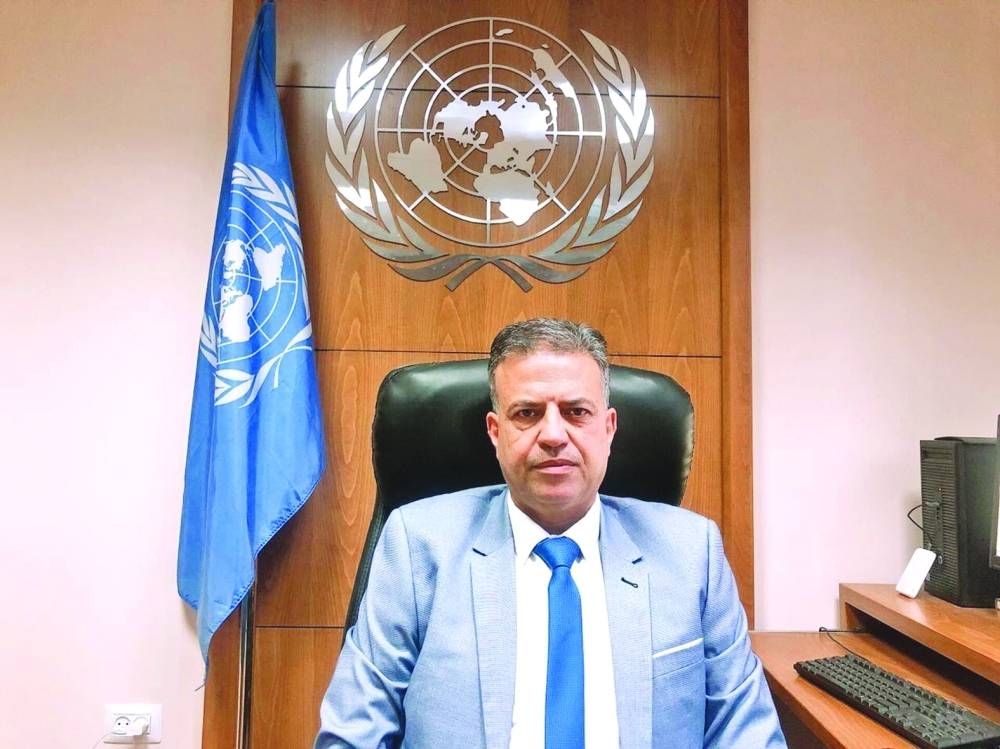The media adviser at the UN Relief and Works Agency for Palestine Refugees (UNRWA) Adnan Abu Hasna has said that Qatar played a central role in supporting the agency's efforts and meeting its needs throughout the past year, to enable it to carry out its duty towards the Palestinian refugees. In a statement to Qatar News Agency (QNA), he said Qatar's response to the urgent appeal launched by UNRWA recently, through Qatar Fund for Development's announcement of an emergency contribution last December to support the funding shortage suffered by the agency, to strengthen the agency's pivotal role to protect the rights of Palestinian refugees at risk and to alleviate their urgent and immediate needs.
He pointed out that the international agency is on the verge of great challenges during the current year in light of the increase in the number of Palestinian refugees and the increase in their needs, explaining that the latest statistics show that 6.9mn refugees are registered with UNRWA in its five areas of operations, in addition to 700,000 others from registered beneficiaries.
He said that the UN General Assembly voted overwhelmingly in favour of extending UNRWA's mandate for three years, starting from June 2023, and what is now required is to translate the great international and political support into real financing for the agency's programmes in order to ensure the continuation of its services to millions of refugees in the five areas of operations. He pointed out that the agency will face a major challenge in order to continue its services during the current year with regard to education, health, food, and payment of employee salaries.
Abu Hasna stressed that UNRWA ended 2022 with the largest financial deficit in its history, which is $80mn, which adds great burdens to the budget for 2023 and increases the challenges that must be faced to ensure the continuity of services and programmes. "Our main goal will be to continue providing services to the 6mn Palestinian refugees living in Jordan, Syria, Lebanon, the West Bank, and the Gaza Strip," he said.
He added: "Of them, about 560,000 students receive their education in 715 schools, and 1.7mn receive food aid in Syria, Gaza and the rest of the regions, and hundreds of thousands of others receive cash assistance, in addition to the millions who receive treatment in clinics spread in the five areas of operations."
He added that the continuous deterioration of conditions in Gaza Strip constitutes a great pressure on the agency due to the increase in the number of refugees and their needs, the continued imposition of the Israeli blockade, the lack of energy, the destruction of the Palestinian private sector, the limited movement and lack of exports, and the psychological and family pressures on the children in Gaza, which has made it an area that is dependent on comprehensive humanitarian aid.
He revealed that 42% of first-grade students in UNRWA schools suffer from mental disorders, explaining that families in Gaza are becoming more vulnerable in light of the great economic pressure they are experiencing, which has serious psychological and societal repercussions. Abu Hasna indicated that the number of refugees benefiting from food aid in Gaza is set to reach 1.2mn at the end of this year, as Gaza Strip takes the largest share of the agency's budget, amounting to 37%, and a larger percentage than the emergency budget.
He pointed out that UNRWA has a plan for the digital transformation of all its programmes and the improvement of the reality of refugee camps, as the plan includes updating education programs and equipping students to have the ability and skill to absorb digital changes in the world, expanding the donor base by turning to the private sector, Zakat institutions, foundations, banks, and partnerships with other UN organisations to assist the agency without prejudice to the services it provides or transferring any of its programmes.

Adnan Abu Hasna, media adviser at the UNRWA
